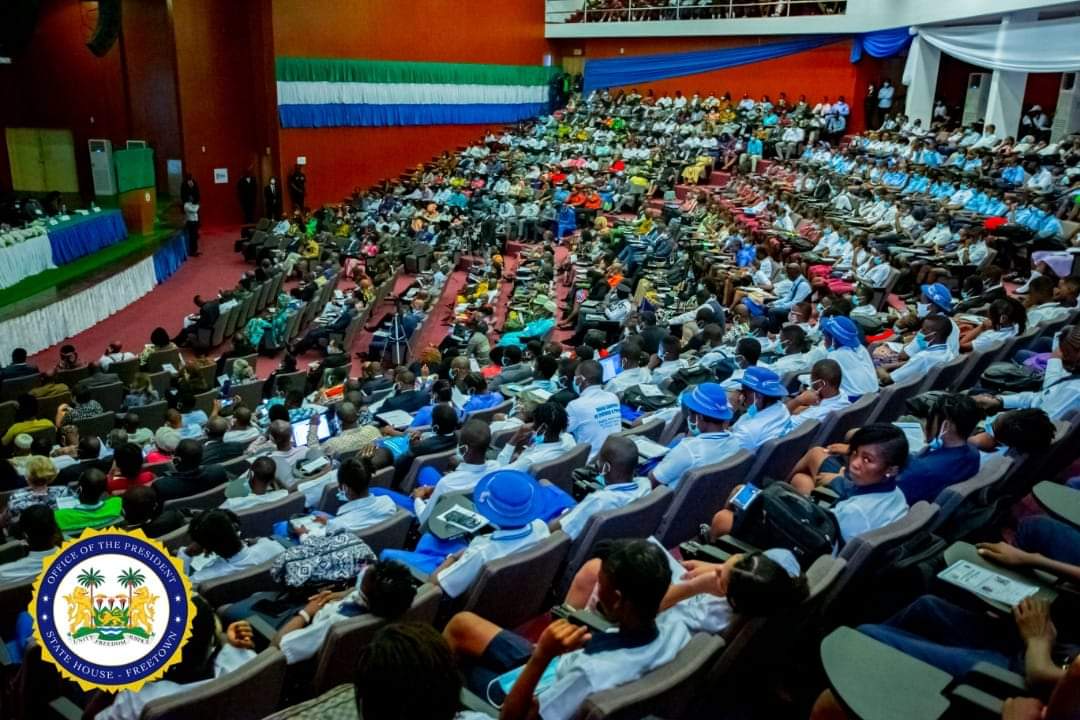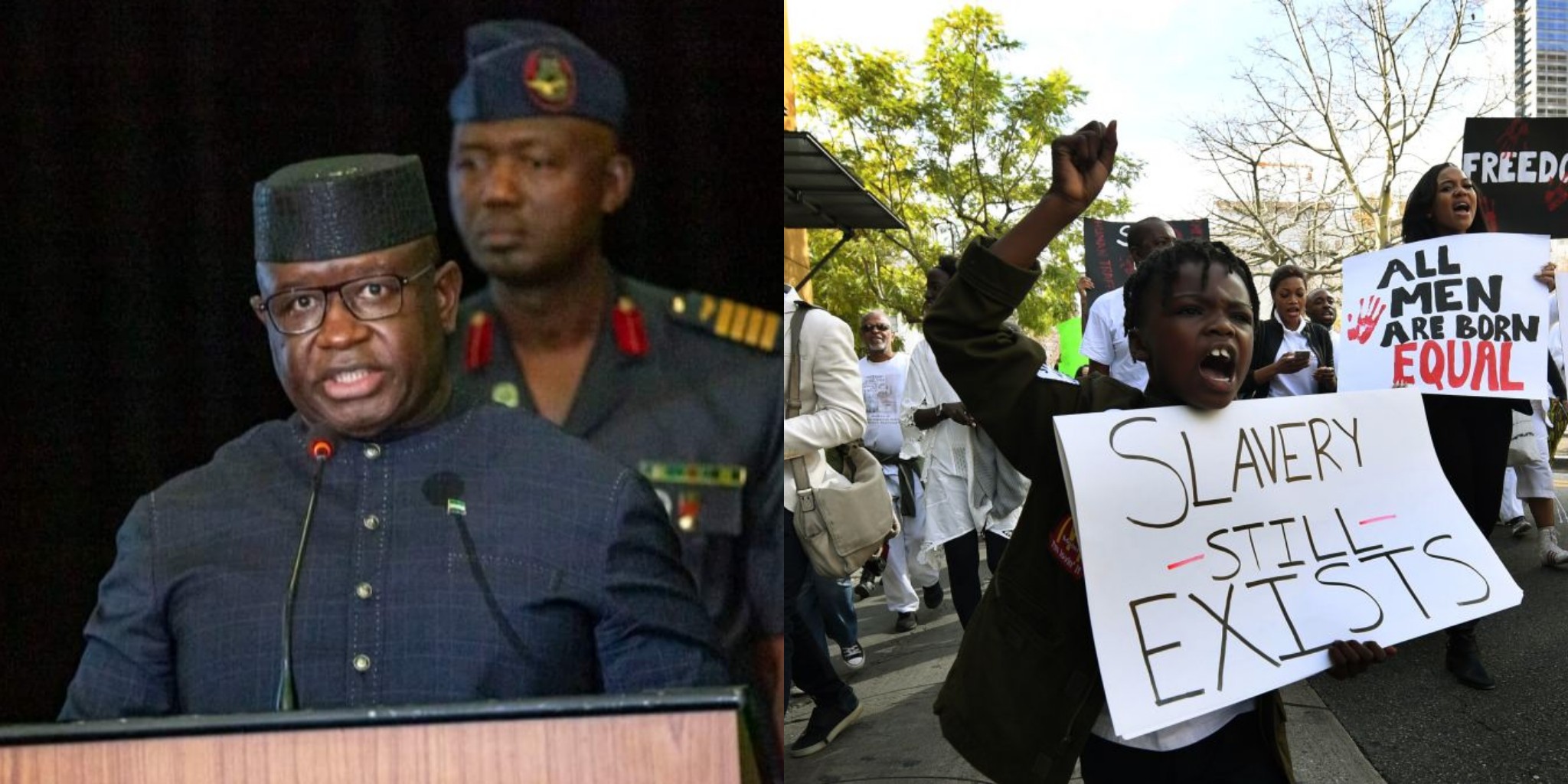President Dr Julius Maada Bio has publicly renewed his commitment to working with stakeholders and development partners to address trafficking in persons, a form of modern-day slavery that constitutes a crime against the individual and the state.
He made this statement at the Freetown Int. Conference Centre, Bintumani Hotel, on Monday 28 February 2022.
In his keynote statement to the opening of the national conference on trafficking in persons, the President said within the policy and regulatory space, they had worked across government and with partners to launch a comprehensive national migration policy for Sierra Leone.
“We are making efforts to structure and monitor labour migration through the Ministry of Labour and Social Security in ways that make migrants less susceptible to exploitation and trafficking. There are more possibilities for inter-agency and partner collaboration to get labour migration right.
“Domestically, we are reviewing and improving on the Anti-Human Trafficking Act of 2007, Act No. 7. The Anti-Human Trafficking and Migrant Smuggling Bill 2021 is more expansive, in accord with international best practices, and addresses a wider variety of crimes including debt bondage, sexual servitude, illegal removal of organs, and all forms of migrant smuggling,” he said.

He called on the international community to significantly increase the risk of trafficking in persons, assuring them of Sierra Leone’s readiness to cooperate with Governments and organisations that are or will work towards those steps.
“Working with partners, the Office of the Vice President and the Ministry of Social Welfare have also established immediate strategic priorities for reducing human trafficking in Sierra Leone from 2022-2023. These strategic actions include training investigators, law enforcement officials, first responders including social workers, and judges. It will also involve stakeholder and community engagements on identifying, reporting, and cooperating on prosecuting human trafficking cases in all its forms,” Bio said
“But we also believe that we can and we should harness the power of data to augment our fight against trafficking in persons. I am pleased to hear, for instance, about the work of the IOM [International Organisation for Migration], Irish Embassy, the EU, APRIES, the EU, and the US Government. I am also pleased to hear about the work of Professor David Okech that supports training Sierra Leoneans to use data to inform counter-trafficking programmes and policies,” he added.
In a welcome statement earlier, Minister of Social Welfare, Honourable Baindu Dassama, said that the motive behind the conference was to bring together all stakeholders working to reduce child trafficking in the country, adding that the issues of women and girls were at the center of the conference because they were those highly affected by the ugly inhuman treatment.
First Lady Fatima Maada Bio said the conference was a significant milestone, where all stakeholders converged to discuss, plot and map out a comprehensive national strategy to combat the global menace of trafficking in persons. She added that domestic or internal trafficking of especially young girls and women mostly from rural communities to cities across the country, accounted for a significant percentage of citizens being exploited for sexual and labour purposes.
“The Office of the First Lady, through our ‘Hands Off Our Girls’ campaign’s thematic pillar of Trafficking in Persons, has embarked on comprehensive awareness-raising and advocacy campaign programmes against both domestic and international trafficking over the last three years. Our advocacy played a leading role in the declaration of rape as a national emergency as well as the reviewing and strengthening of the Sexual Offences Act and the establishment of the special court for sexual offences,” she recalled.
United Nations Resident Coordinator in Sierra Leone, Dr Babatunde A. Ahonsi, said that trafficking in persons, was a hideous criminal activity that constituted an affront to human dignity as it often entails serious human rights violations and abuses. He further noted that the Government of Sierra Leone, its development partners, including the UN, were working together to tackle trafficking in persons despite various constraints related to the COVID-19 pandemic and the adaptability of the traffickers to evolving situations.
“This National Conference is a timely opportunity to reflect and plan for actions to continue the joint fight towards ending Trafficking in Persons in Sierra Leone. The United Nations in Sierra Leone, through IOM and UNODC will continue to support the strategic priorities of the National Trafficking in Persons Taskforce, looking pragmatically at the 3Ps and the outcomes of this National Conference,” he concluded.











